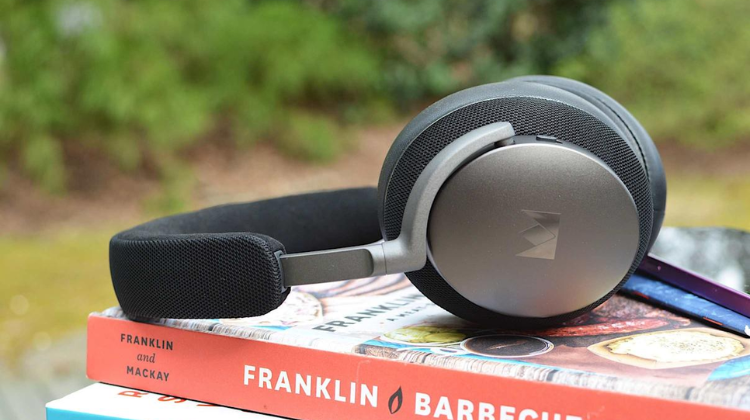As reported by the data firm Statista, in the UK alone, we allocate roughly one billion pounds annually on headphones, with a notable demand for wireless models. While many enthusiasts appreciate them, there have also been discussions on social media regarding their possible health implications. Other Side of the Story investigated these worries to distinguish between facts and misinformation. How Safe are Wireless Headphones
Are wireless headphones safe?
Wireless headphones, whether over-ear or in-ear, utilize Bluetooth technology to link with our devices. This involves the creation of an electromagnetic field, leading some individuals to speculate about potential harm to our brains.
Scientific studies have been conducted regarding wireless headphones and their possible dangers. They release a type of radiation known as radiofrequency radiation, which operates at a significantly lower frequency than the radiation that can be harmful to humans. In 2019, Cancer Research UK asserted that there wasn’t sufficient evidence to prove that Bluetooth headphones pose a threat and that studies involving large populations found no correlation with an increased cancer risk. Nevertheless, research into the health impacts of wireless headphones is ongoing as of 2025.
Are pricier headphones superior?
Noise-cancelling headphones are a relatively recent innovation. They incorporate specialized software that eliminates external sounds like a television or barking dog, enabling the user to concentrate solely on one audio source.
Prices for these headphones vary, ranging from under £50 to over £100 and beyond. Which? magazine, where a group of experts evaluates different brands and models of various products, discovered that decent noise-cancelling features could be found in headphones costing around £50, indicating that spending a lot isn’t always necessary – but ultimately, the amount someone chooses to invest is entirely their decision.
Do noise-cancelling headphones safeguard our hearing?
Other Side of the Story consulted Claire Benton, the president of the British Academy of Audiology, to gain insights on noise-cancelling headphones. Claire shared that they can assist in protecting hearing, as concentrating on a single sound with all other noises muted means it doesn’t have to be played at a high volume.
“You must still adhere to proper listening habits,” Claire emphasized. “Give your ears breaks from listening, maintain a safe volume level, as the temptation to increase it remains. Some individuals really enjoy loud music, and we know it can be quite hazardous if done for prolonged periods. The regulations indicate that eighty-five decibels (dB) for eight hours is considered safe, without any hearing protection.”
Eighty-five dB corresponds to the sound level produced by heavy traffic or a food blender. Claire noted that if you listen to something just three dB louder, the time you can safely listen drops from eight hours to four.
Claire remarked: “For those who easily lose focus due to external sounds or find background noise bothersome, noise-cancelling headphones can be beneficial in creating a more peaceful atmosphere in noisy environments.
“There are emerging concerns that excessive use of noise-cancelling headphones might potentially impact your auditory processing abilities. It is suggested that prolonged use of these headphones could interfere with your capacity to understand speech in noisy settings when they’re not in use, but this is still a topic of ongoing research.”
What distinguishes headphones from ear plugs?
Noise-cancelling headphones serve as a method to diminish sound levels, but they may not be suitable for live events like concerts or music festivals. Nonetheless, these are the types of situations where protecting your ears is crucial, and ear plugs could be a viable alternative.
Research conducted by the Royal National Institute for Deaf People (RNID) indicated that 58% of individuals aged 18 to 28 experienced some degree of hearing loss or hearing-related problems after being exposed to loud music. Typically, these effects are temporary, but frequent exposure to such loud environments can lead to lasting harm. The newer types of ear plugs that are gaining popularity at festivals allow sound to enter but at a diminished level, making it more comfortable to participate in these events if high noise levels are unsettling for you.
Do ear plugs really work?
Yes, ear plugs are effective. Even the most basic foam plugs create a shield between outside noise and the ear canal—though caution is recommended when putting them in or taking them out.
The typical sound levels at a music festival range from 90db to 100db, while the human ear can safely handle prolonged exposure to sounds no louder than 80db.
Saira Hussain, an audiologist, shared her insights on ear plugs during the BBC Sounds Sliced Bread podcast: “From a healthcare viewpoint, it’s encouraging to see an increased awareness about safeguarding your hearing against noise. So absolutely, when attending a festival… make sure to have something to protect your ears.”
Be sure to check out this segment from Sliced Bread featuring Saira discussing ear plugs.
Trevor Cox, who also featured on Sliced Bread, is a Professor of Acoustic Engineering at the University of Salford. He mentioned that when purchasing ear plugs, he would seek ones that specify a certain decibel reduction. However, he also cautioned: “I wouldn’t rely solely on them because I wouldn’t know their effectiveness until they arrive.” How Safe are Wireless Headphones
- How Safe are Wireless Headphones? a Simple Guide
- How To Choose The Right Headphones For Your Needs?
- Do Noise Cancelling Headphones Work for Snoring?
- The Buds3 Pro May Not be as Good as the New Samsung Galaxy Buds3 FE.
- What Could be the Reason for The Headphone jack not Working on a Smartphone?
- How can one Wear Headphones Without Experiencing Pain in the Ears and head?
- Smart Tips for Choosing the Right Noise-Cancelling Over-Ear Headphones for Work

